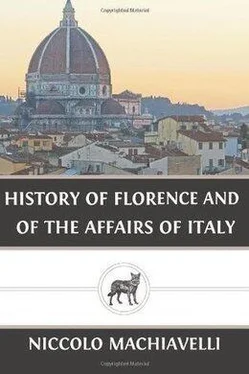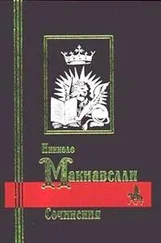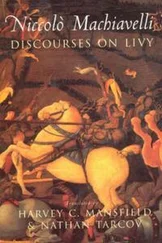In the war between the king of Naples and the pope, the former had taken the district of Tagliacozzo from the Orsini, and given it to the Colonnesi, who had espoused his cause. Upon the establishment of peace, the Orsini demanded its restoration by virtue of the treaty. The pope had frequently intimated to the Colonnesi that it ought to be restored; but they, instead of complying with the entreaties of the Orsini, or being influenced by the pope's threats, renewed hostilities against the former. Upon this the pontiff, unable to endure their insolence, united his own forces with those of the Orsini, plundered the houses they possessed in Rome, slew or made prisoners all who defended them, and seized most of their fortresses. So that when these troubles were composed, it was rather by the complete subjugation of one party than from any desire for peace in the other.
Nor were the affairs of Genoa or of Tuscany in repose, for the Florentines kept the Count Antonio da Marciano on the borders of Serezana; and while the war continued in Lombardy, annoyed the people of Serezana by inroads and light skirmishes. Battistino Fregoso, doge of Genoa, trusting to Pagolo Fregoso, the archbishop, was taken prisoner, with his wife and children, by the latter, who assumed the sovereignty of the city. The Venetian fleet had attacked the kingdom of Naples, taken Gallipoli, and harassed the neighboring places. But upon the peace of Lombardy, all tumults were hushed except those of Tuscany and Rome; for the pope died in five days after its declaration, either in the natural course of things, or because his grief for peace, to which he was always opposed, occasioned his end.
Upon the decease of the pontiff, Rome was immediately in arms. The Count Girolamo withdrew his forces into the castle; and the Orsini feared the Colonnesi would avenge the injuries they had recently sustained. The Colonnesi demanded the restitution of their houses and castles, so that in a few days robberies, fires, and murders prevailed in several parts of the city. The cardinals entreated the count to give the castle into the hands of the college, withdraw his troops, and deliver Rome from the fear of his forces, and he, by way of ingratiating himself with the future pontiff obeyed, and retired to Imola. The cardinals, being thus divested of their fears, and the barons hopeless of assistance in their quarrels, proceeded to create a new pontiff, and after some discussion, Giovanni Batista Cibo, a Genoese, cardinal of Malfetta, was elected, and took the name of Innocent VIII. By the mildness of his disposition (for he was peaceable and humane) he caused a cessation of hostilities, and for the present restored peace to Rome.
The Florentines, after the pacification of Lombardy, could not remain quiet; for it appeared disgraceful that a private gentleman should deprive them of the fortress of Serezana; and as it was allowed by the conditions of peace, not only to demand lost places, but to make war upon any who should impede their restoration, they immediately provided men and money to undertake its recovery. Upon this, Agostino Fregoso, who had seized Serezana, being unable to defend it, gave the fortress to the Bank of St. Giorgio. As we shall have frequent occasion to speak of St. Giorgio and the Genoese, it will not be improper, since Genoa is one of the principal cities of Italy, to give some account of the regulations and usages prevailing there. When the Genoese had made peace with the Venetians, after the great war, many years ago, the republic, being unable to satisfy the claims of those who had advanced large sums of money for its use, conceded to them the revenue of the Dogano or customhouse, so that each creditor should participate in the receipts in proportion to his claim, until the whole amount should be liquidated, and as a suitable place for their assembling, the palace over the Dogano was assigned for their use. These creditors established a form of government among themselves, appointing a council of one hundred persons for the direction of their affairs, and a committee of eight, who, as the executive body, should carry into effect the determinations of the council. Their credits were divided into shares, called Luoghi , and they took the title of the Bank, or Company of St. Giorgio. Having thus arranged their government, the city fell into fresh difficulties, and applied to San Giorgio for assistance, which, being wealthy and well managed, was able to afford the required aid. On the other hand, as the city had at first conceded the customs, she next began to assign towns, castles, or territories, as security for moneys received; and this practice has proceeded to such a length, from the necessities of the state, and the accommodation by the San Giorgio, that the latter now has under its administration most of the towns and cities in the Genoese dominion. These the Bank governs and protects, and every year sends its deputies, appointed by vote, without any interference on the part of the republic. Hence the affections of the citizens are transferred from the government to the San Giorgio, on account of the tyranny of the former, and the excellent regulations adopted by the latter. Hence also originate the frequent changes of the republic, which is sometimes under a citizen, and at other times governed by a stranger; for the magistracy, and not the San Giorgio, changes the government. So when the Fregosi and the Adorni were in opposition, as the government of the republic was the prize for which they strove, the greater part of the citizens withdrew and left it to the victor. The only interference of the Bank of St. Giorgio is when one party has obtained a superiority over the other, to bind the victor to the observance of its laws, which up to this time have not been changed; for as it possesses arms, money, and influence, they could not be altered without incurring the imminent risk of a dangerous rebellion. This establishment presents an instance of what in all the republics, either described or imagined by philosophers, has never been thought of; exhibiting within the same community, and among the same citizens, liberty and tyranny, integrity and corruption, justice and injustice; for this establishment preserves in the city many ancient and venerable customs; and should it happen (as in time it easily may) that the San Giorgio should have possession of the whole city, the republic will become more distinguished than that of Venice.
Agostino Fregoso conceded Serezana to the San Giorgio, which readily accepted it, undertook its defense, put a fleet to sea, and sent forces to Pietra Santa to prevent all attempts of the Florentines, whose camp was in the immediate vicinity. The Florentines found it would be essentially necessary to gain possession of Pietra Santa, for without it the acquisition of Serezana lost much of its value, being situated between the latter place and Pisa; but they could not, consistently with the treaty, besiege it, unless the people of Pietra Santa, or its garrison, were to impede their acquisition of Serezana. To induce the enemy to do this, the Florentines sent from Pisa to the camp a quantity of provisions and military stores, accompanied by a very weak escort; that the people of Pietra Santa might have little cause for fear, and by the richness of the booty be tempted to the attack. The plan succeeded according to their expectation; for the inhabitants of Pietra Santa, attracted by the rich prize took possession of it.
This gave legitimate occasion to the Florentines to undertake operations against them; so leaving Serezana they encamped before Pietra Santa, which was very populous, and made a gallant defense. The Florentines planted their artillery in the plain, and formed a rampart upon the hill, that they might also attack the place on that side. Jacopo Guicciardini was commissary of the army; and while the siege of Pietra Santa was going on, the Genoese took and burned the fortress of Vada, and, landing their forces, plundered the surrounding country. Biongianni Gianfigliazzi was sent against them, with a body of horse and foot, and checked their audacity, so that they pursued their depredations less boldly. The fleet continuing its efforts went to Livorno, and by pontoons and other means approached the new tower, playing their artillery upon it for several days, but being unable to make any impression they withdrew.
Читать дальше












